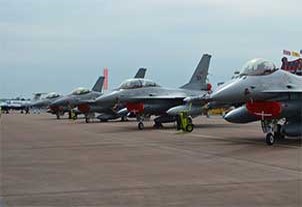
Author: Kevin Hopwood, Principal Consultant.
Despite the devastating impact of Covid 19 on humanity and the impact it continues to cause, some organisations have prospered whilst others have struggled to function. Sadly, the loss of life has been tragic, and families have been affected by job losses which impacts on their way of life.
The statistics clearly show some countries have been more fortunate than others and the same can be said for industries. Organisations are designing innovative ways to operate in the new world, all of which has resulted in many sleepless nights and a great deal of stress for thousands of people.
Despite the above, countries are continuing their journey in adopting their implementation of an EMAR based airworthiness system https://www.eda.europa.eu/experts/airworthiness. For some, it’s all about consolidation of their existing approach, whilst for others the task has been initiated, or is about to be launched.
The transformation from the old to the new needs careful management. Significant data is available which can help guide organisations through the process; a multitude of organisations and individuals have documented their thoughts in papers and on websites.
The decisions to change the approach from the old regulatory framework, to a new EMAR aligned approach, would have been taken by senior management. Business cases have been drafted, amended, and amended again so that the justification and vision for the future state can be agreed by the leadership team.
Once the decision for change has been agreed there is always one key question that needs to be answered – can the new approach be funded? It’s a question that always needs addressing as there are many costs associated with managing the implementation of a new approach.
Its fundamental that the project implementation team acquire new knowledge, they will need to sell the benefits of the new approach to convince those coffee machine bandits who seek to act as a barrier to implementation of the new approach. Sadly, its ingrained within some that there is no need to change and others have got it wrong. It’s important to be able to sell the new approach to the organisation with clear benefits.
Introducing a new system involves a gap analysis which focuses on comparing the knowledge and skills an organisation possesses against what will it need so that the greatest benefits of the new approach can be gleaned and communicated.
Like any other organisation we have been impacted by the Covid 19 pandemic and yet we still endeavour to think about and implement new methods of training to deliver the new knowledge needed by these implementing countries. Just like any other organisation we have had to design new methods of training so we can help aid the implementation of these new EMAR based solutions. Virtual training has become a norm, and has been embraced by all, and yet as countries ‘open up’ face to face training is recommencing where possible.
Understanding the intent of the regulations is paramount and our aviation training focuses on shaping attitudes, changing minds and effecting a positive change at both a personal and organisational level. We’re passionate about the importance of taking your level of practical skills, competence and knowledge beyond that which the regulations stipulate, even when the training is delivered in the virtual world.
Delivering training in the virtual world has brought its own challenges but with each challenge comes an opportunity to learn
The management of change process discussed earlier produced challenges, but by having an effective team these have been countered and, as a result, our virtual training portfolio enables people to achieve and maintain vital skills and competence, via their laptop or mobile device, without the need to travel. Classroom courses have been adapted for optimum online learning and delivered via reputable and secure online training software.
Not only is training been delivered in the virtual world, it’s also being delivered around the clock. The restrictions around air travel, and country entry restrictions, limited our ability to deliver training directly to clients but each problem can be overcome. Today’s new norm shows us that meeting and exceeding your customer needs does not take place just between the hours of 09:00 – 17:00
Those authorities implementing an EMAR based solution are not just located in the EU, and those organisations that need to implement compliance are also based in various countries around the world, often with significant time differences between the UK and our clients. By being adaptable and fitting with the new world, we have been helping Military Aviation Authorities with implementation, and organisations with compliance, against the EMARs.
What’s remarkable is the willingness of personnel to embrace this new form of training delivery. It’s a bizarre situation delivering training to personnel in California whilst sitting in your home office in the UK, thankfully the ‘buzz’ we get is just the same. Despite the Covid-19 pandemic, it’s business as usual for us, with a range of training programmes available via virtual training or in a socially distanced classroom setting at our Aviation Safety Training Academy.
